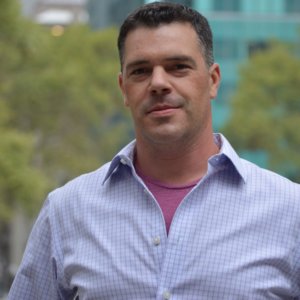Times are changing. The nature of how we work looks nothing like it did even just twelve months ago. As a result, hiring methods that have been in place for decades are changing too. You could even say hiring is undergoing a revolution. In my years as a recruiter, I’ve seen these changes coming. In fact, it’s the reason I founded Averity: to help companies hire the right people for the future.

Some of these changes come with the territory of recent shifts to remote working, but others are more fundamental. They reflect the need for both hard and soft skills in top-notch candidates. To keep up, we are going to see changes in who we hire, how we hire, and what we hire for.
Who: Increases in technical specialization and the growth of remote work means the pool for talent is no longer geographically limited, but more importantly, the candidates who stand out from this pack are the ones who can demonstrate collaboration and communication skills in addition to hard skills and certifications.
Here are the skills of the future to look for in the hiring process:
• Time management skills: Can this candidate meet deadlines while working independently, without a manager there to look over their shoulder? And are they able to do it while maintaining a healthy work-life balance?
• Teamwork and collaborative skills: Your organization is a team. The most talented candidate is not going to succeed if they have a go-it-alone attitude or have trouble sharing credit or taking direction from their peers. During the recruiting process I like to ask candidates to share moments when they’ve accomplished something as a team that they wouldn’t have been able to do alone.
• Open communication skills: Teamwork doesn’t go very far if you don’t know what your teammates are up to. That’s why communication is critical. Even as software like Zoom and Slack have seemingly made communication easier, both in the office and for remote workers, they also create new opportunities for miscommunication.
• Initiative: Is the candidate a “self-starter”? Can they get a project up off the ground? Have they ever turned a passion or dream project into reality? Look for a candidate who doesn’t need a push to get things done, but knows how to push themselves.
• Positive attitude: You want a team member who is supportive and respectful of others. This is more than just having a smiling face. It also means someone who can accurately diagnose and address problems that arise without casting blame or pointing fingers. A supportive, respectful candidate helps others do their jobs better.
Of course, these skills have been important since the beginning of time. But because they can be hard to pin down during the recruiting process, they don’t always get the emphasis they require. In the future, identifying candidates who show these skills will make the difference between a “minimum viable candidate” and an outstanding one.
How: Even if you know who you’re looking for, you still have to find them. Finding the right candidate is getting more complex, and more companies are discovering the value of talent experts and technology. A good recruiter is not just focused on the transaction of hiring; they are dedicated to finding the right person for the job, the quality hire that will make a difference for your business.
Since founding Averity, I have been focused on helping companies do just that. It’s why we have in place a 5 point process to help secure not just the first qualified candidate, but the best candidate for the job—one who’s not just a good fit for your company, but who wants and is thrilled to accept the position:
Step 1: Identify
Finding candidates is the necessary first step. We build specific marketing campaigns for each organization, then with the help of proprietary technology reach out through multiple channels to find potential fits.
Step 2: Qualify
We screen potential candidates not only for their skills and expertise, but to gauge their motivations and level of interest in the new position. Why are they interested in leaving their current position, and what are they looking for?
Step 3: Interview Coordination
Preparation is the key to a successful interview process, and that works both ways. We take the time to prepare both the candidate and the organization, so both sides can learn the most about each other and take away what they need to make a decision.
Step 4: Transparency
Open communication is an asset even before the new hire starts. Today, it’s critical to gather honest feedback from both company and candidate, to understand the interest on both sides and to keep everyone up to date. It’s a better approach than keeping either party in the dark, or worse, rushing to close the (wrong) deal.
Step 5: Oversee Closure, Start, and On-Boarding
Having open and transparent communication raises the chances that an offer will be accepted. (That’s why Averity’s acceptance rate is double the industry average.) And we stay in contact through onboarding and after to ensure a smooth and successful transition.
What: We can’t know what the future will bring, or what challenges and demands it will present to your company. That’s why it’s so critical to hire with more than just narrow qualifications, but the skills and attitude to take on the unexpected as part of a team. As I like to say, no matter what a resume says, you’re working with people. You aren’t hiring buzzwords, you’re hiring people.


Create an Account or Sign In